When it comes to brainstorming ideas, what’s more crucial: quantity or quality? On 3 March 2025, Impact Lab students gathered to tackle this question at the “Creative Process of Ideation: Design Thinking” seminar, an event fueled by curiosity and creativity and divided into three engaging sections—Inspiration, Ideation, and Prototyping.
To kick off the seminar, participants received a friendly reminder to take action for the planet by recycling their trash, simply by cleaning and sorting them into designated bins for different recyclables. Students were encouraged to embrace this practice on their way out, reinforcing that every small action counts in our shared journey toward a healthier planet.
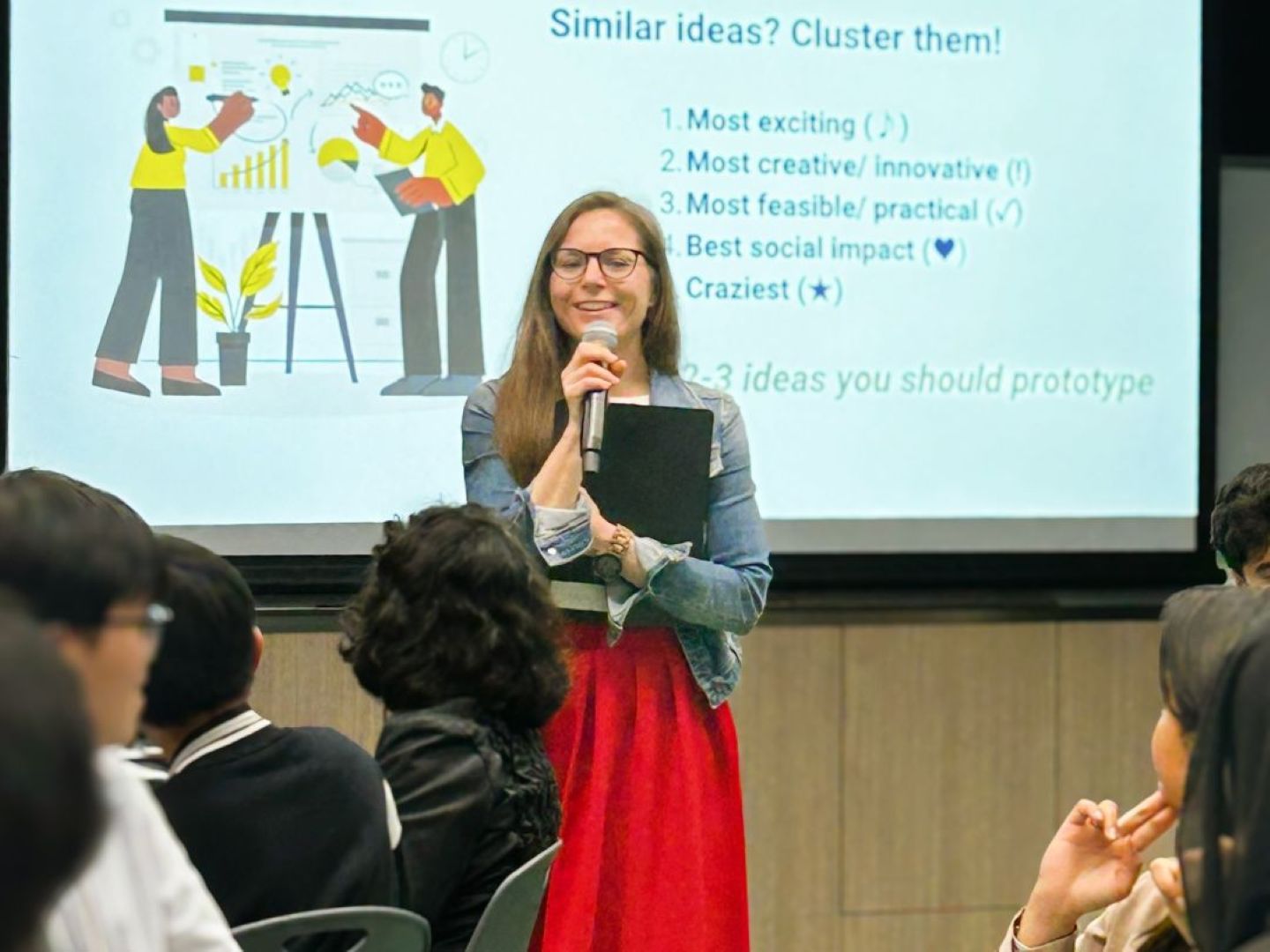
Empathy in Action: Finding Inspiration
The first section of the seminar introduced the first phase of the design thinking cycle: inspiration. Using Seekr, an innovative app designed to assist visually impaired individuals and the elderly, as an example, Lucia Loposova, the Education Manager of FSI, ignited a spark among students by emphasizing the significance of drawing inspiration from observation. “If you’re working with people who have disabilities, consider how to improve their lives,” she urged.
As Lucia encouraged the Impact Lab students working with Seekr to reflect on the specific challenges their app aimed to address, one student shared insights about the daily hurdles faced by visually impaired individuals. Lucia further steered the conversation toward the critical role of empathy in developing effective solutions. “To truly understand what people need, we must engage deeply with their experiences,” Lucia said, inviting students to brainstorm ways to cultivate that empathy.
One student suggested a way to empathize with individuals with visual impairments: wearing blindfolds to experience the struggles firsthand. Understanding the real-world challenges they were aiming to tackle allowed the students to connect more deeply with the lives of those they hoped to assist.
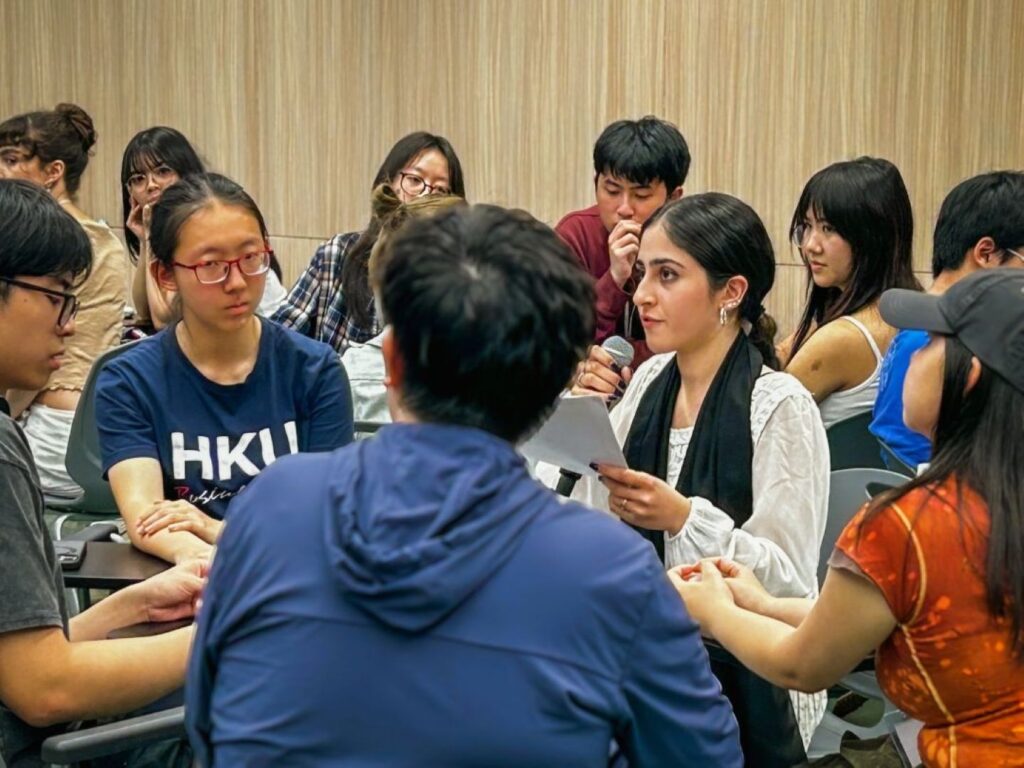
Generating Ideas: Embrace the Chaos
With inspiration flowing, the seminar smoothly transitioned into the ideation phase, where creativity reigned supreme. What is ideation, you ask? It’s all about letting loose of blue-sky thinking to generate ideas, concepts, and strategies to solve problems.
Lucia encouraged students to throw caution to the wind: “Don’t hold back for the sake of one fantastic idea. Instead, push yourself to produce as many ideas as you can—even the outlandish ones!” David Bishop, Co-founder and Director of FSI and Impact Lab Course Instructor, added to the excitement, asserting that we should leverage advanced technology like generative AI to innovate, not just to quicken mundane tasks.
Idea generation, he noted, is a skill that requires practice. “Always carry a notebook to jot down ideas as they come,” he suggested. “You’ll start noticing gaps and inefficiencies in the systems around you.”
As participants embarked on this ideation journey, they embraced two critical principles: diverging and converging. Initially, they let their imaginations run wild—everything was on the table—before refining their ideas through collaboration. Lucia reminded everyone that during brainstorming, “No judgment is allowed—everything goes!”
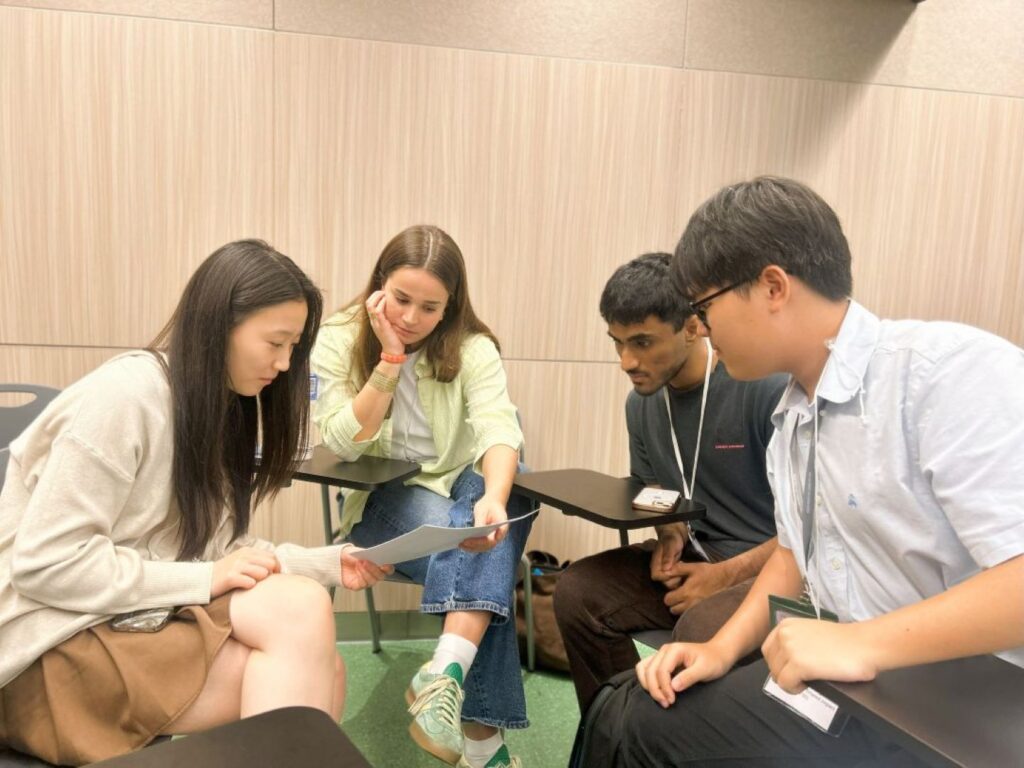
Brainstorming for a Sustainable Tomorrow
Next, students broke into groups to tackle a thought-provoking challenge: “How can we get Hong Kong citizens to lead a more sustainable life?” This brainstorming session illuminated a range of innovative proposals.
One group suggested placing more recycling bins in housing estates to encourage responsible waste management while providing opportunities for the elderly to earn from recycling. Another idea proposed offering discounts on MTR fares, which would promote public transport use, reduce carbon emissions, and make commuting more affordable and climate-friendly.
Participants also stressed the importance of impactful government policies, drawing on Scotland’s success with electronic passes and cycling infrastructure as inspiration. Additionally, a suggestion emerged to use AI to help citizens visualize the long-term consequences of pollution, prompting a deeper understanding of the need for sustainable practices.
David raised an important point, challenging the group’s focus on recycling alone. While recycling is essential, he argued that it creates a false sense of individual responsibility without addressing systemic issues, urging critical thinking and broader definitions of sustainability that include lifestyle choices and social responsibility.
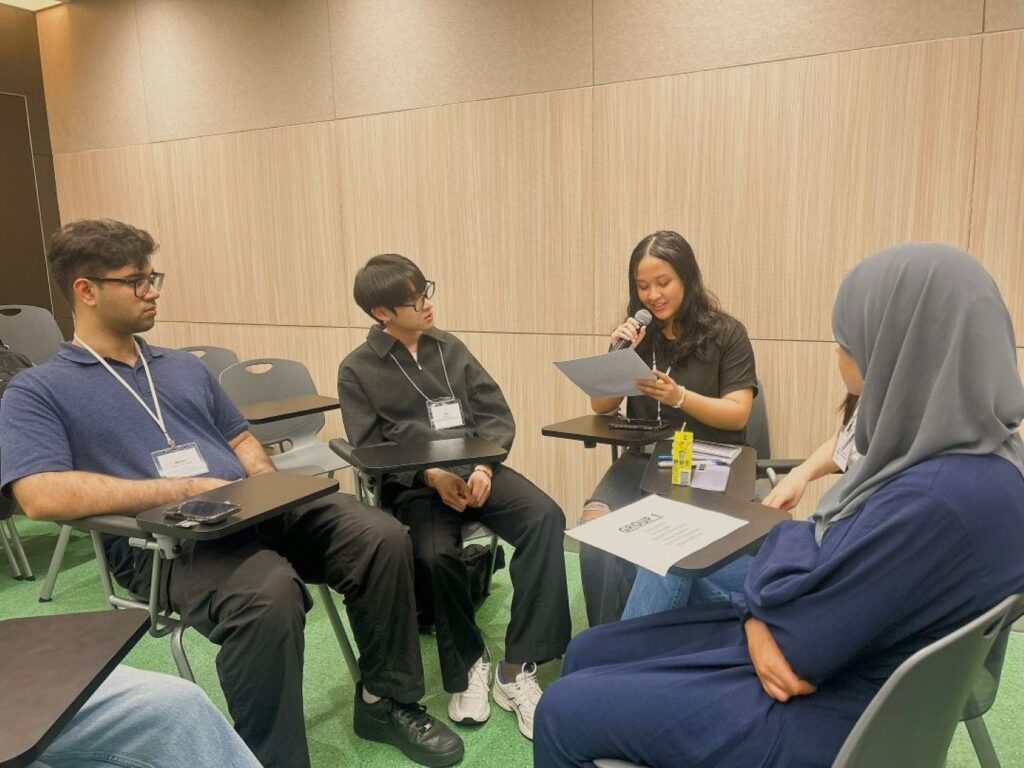
Turning Ideas into Action
Students continued refining their ideas in collaborative sessions. The ideation process produced a tapestry of proposals aimed at addressing various social and environmental issues in Hong Kong.
One group focused on raising awareness about PFAS, or “forever” chemicals, and advocated for public education campaigns, stating, “We need to educate people about these harmful chemicals in their everyday products.” Another group highlighted the importance of creating collaborative learning environments to reduce competitive pressures affecting students’ mental health, suggesting, “Let’s create spaces where students can learn from each other.”
Financial literacy training for underprivileged graduates emerged as a vital theme, which underscored the importance of empowering people with financial knowledge and, as a result, enhancing their access to better opportunities.
Furthermore, a tech-savvy group proposed developing a scam prevention app designed to help users recognize and avoid scams, noting, “Using real-life stories can help others recognize and avoid scams.” Finally, another group discussed creating an app to track food inventory aimed at transforming linear food systems into circular ones.
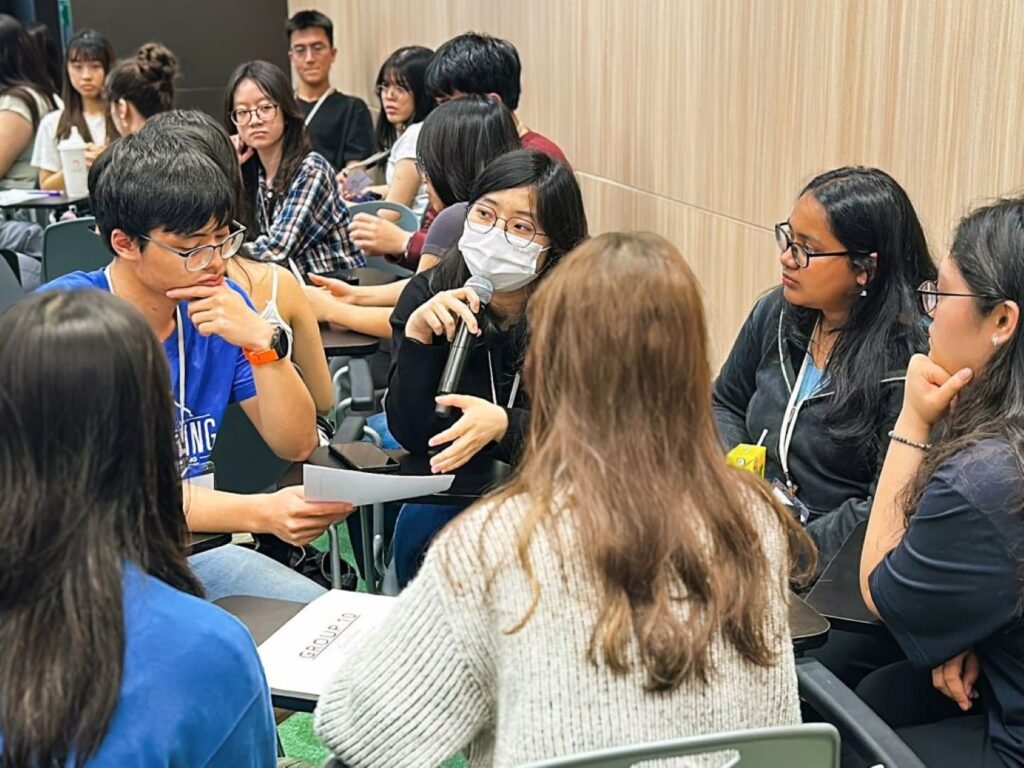
The design thinking seminar not only sparked creativity but also encouraged students to think critically and collaboratively about solutions that could enhance sustainability and improve the quality of life for everyone, knowledge that they can apply to their work at the Impact Lab Course’s partner companies.
Charlotte Pak, a student working with GREEN Hospitality, said, “This seminar helped me look at ideas from different perspectives through the exercises that we did.” Vy Vu, another student working with GREEN Hospitality, echoed, “Hearing the different ideas was the best part of the seminar.”

Stay Tuned
Through our Impact Lab Course, we support students to develop themselves and enhance essential human skills through experiential learning internships with impact startups as well as thematic seminars. Read up on our recent Developing a Resilient Mindset for Success workshop and stay tuned for updates on the “Learning from Failure: Mastering Risk Management” and “Systems Change” seminars.
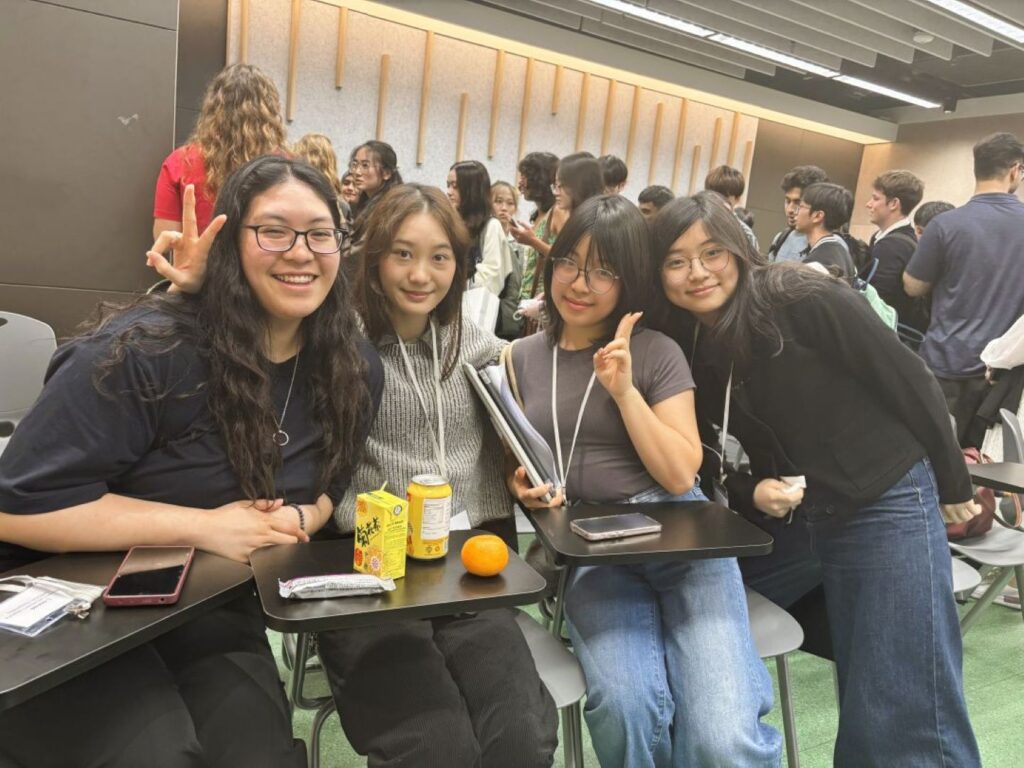
*This blog post was drafted by Kabita K. Sahteli, Communications and Marketing intern at the Foundation for Shared Impact (FSI) during the Spring 2025 semester of the Impact Lab Course.



